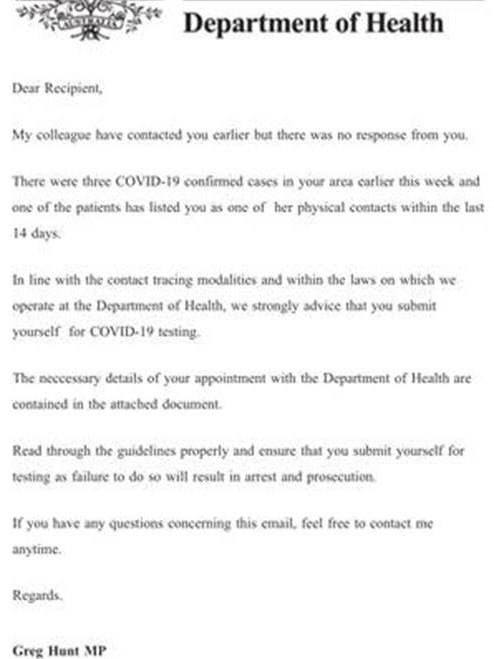Scammers have used the coronavirus pandemic to defraud people out of millions of dollars
There were less than 100 reported coronavirus scams before March, now there have been more than 3500, costing Australian’s millions
North
Don't miss out on the headlines from North. Followed categories will be added to My News.
Fraudsters are using the coronavirus pandemic to rip millions of dollars out of Australian pockets.
Scammers are even pretending to be the Federal Health Minister Greg Hunt in order to convince people to hand over their financial details.
Ripped off people have reported to the Australian Competition and Consumer Commission’s Scamwatch more than $2.4 million in losses to COVID-19 related scams.
MORE NEWS
QUEENSLAND TO SLAM BORDER SHUT TO NSW, ACT
IPSWICH WOMAN TESTS POSITIVE TO COVID-19
WHY PEOPLE ARE LYING ON THEIR CORONAVIRUS FORMS
The number of scams skyrocketed during the lockdown. On March 20, Scamwatch had received 94 coronavirus-related scam reports.
At the end of July more than 3600 scams mentioning COVID-19 has been reported to the group.
A recent viral post on Brisbane social media pages stated cold callers were contacting people telling them they had recently come into contact with a confirmed COVID-19 case and asked for credit card details to pay for a test kit to be sent to them.

A Scamwatch spokesman said there had been six reports of the scam, but only $50 worth of reported losses.
Scammers have sent out fake emails from purporting to be a message from Federal Health Minister Greg Hunt, and fake text messages falsely claiming the recipient is eligible for COVID-19 support packages.
These scams use fake hyperlinks to direct people to websites that look official where they hand their financial details to fraudsters.
Similarly, scam emails and text messages from banks, supermarkets and insurance providers have been reported to Scamwatch.
Scammers are also attempting to raid people’s superannuation accounts using the Federal Government’s early access scheme.
To avoid scams, Scamwatch has encouraged people to avoid clinking on hyperlinks and instead manually go to the address through an internet browser, and not respond to unsolicited requests for personal details.
